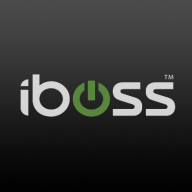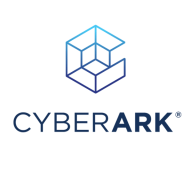


CyberArk Identity and JumpCloud compete in the identity management category. CyberArk Identity has an edge in cybersecurity features, while JumpCloud stands out for its flexibility and cost-effectiveness.
Features: CyberArk Identity is known for password rotation, UiPath Orchestrator integration, and single sign-on capabilities, along with strong MFA and security for privileged user access. JumpCloud offers single sign-on, device management, and extensive application integration, valued for its policy setting ease and multi-platform support.
Room for Improvement: CyberArk Identity could improve interface integration, mobile device management, scalability, customer support, and deployment complexity. JumpCloud requires better policy control granularity, mobile device management enhancements, a more intuitive user interface, richer integration features, and simpler onboarding processes.
Ease of Deployment and Customer Service: CyberArk Identity is deployed in public, private, and hybrid clouds, with complexity in on-premises deployment and mixed customer support feedback on response times and product knowledge. JumpCloud offers simple public cloud deployment with less technical overhead, and customer service is mostly positive, with helpful and responsive support.
Pricing and ROI: CyberArk Identity is a premium solution with a higher cost but offers substantial security ROI, appealing to top-tier companies. JumpCloud provides affordable, cost-effective pricing suitable for startups and smaller budgets, with flexible models for varied organizational needs.


| Company Size | Count |
|---|---|
| Small Business | 6 |
| Midsize Enterprise | 6 |
| Large Enterprise | 6 |
| Company Size | Count |
|---|---|
| Small Business | 20 |
| Midsize Enterprise | 4 |
| Large Enterprise | 10 |
| Company Size | Count |
|---|---|
| Small Business | 19 |
| Midsize Enterprise | 5 |
| Large Enterprise | 3 |
Iboss offers a comprehensive cloud-based security platform valued for its scalability and autonomous features, ensuring robust security with easy deployment and management capabilities.
Renowned for its robust security architecture, Iboss integrates seamlessly within diverse networks, delivering efficient granular filtering and advanced content categorization. Its single pane of glass console provides ease of management, allowing rapid scalability suitable for rapidly deploying environments. Operates in BYOD setups due to inline filtering without device installation. Integration with cloud-based applications enhances user control, and features like SASE, SSL inspection, and ChatGPT risk protection stand as highlights. Despite its strengths, users have pointed out areas for enhancement like direct navigation in reports, SSL decryption, and better cloud integration while having room to improve data loss prevention.
What are the most important features of Iboss?The usage of Iboss spans educational institutions, specifically K-12, to enforce internet policies, protect data, and support remote work environments. It provides web filtering and security frameworks to ensure safe browsing. Its platform-as-a-service model offers flexibility for both cloud-based and on-premises requirements, integrating seamlessly to deliver enhanced security features suitable for various deployment needs including zero trust, CASB, and network security for work-from-home setups.
CyberArk Identity is a versatile identity management solution suitable for a wide range of enterprises. It is designed to enhance enterprise security and improve user experience. Its focus on security, compliance, and operational efficiency, combined with positive user feedback, makes it a strong contender in the identity management space.
CyberArk Identity offers a robust suite of features to manage user identities and access privileges. It focuses on securing access to resources across various environments, including cloud and on-premises applications. Its capabilities include single sign-on (SSO), multi-factor authentication (MFA), lifecycle management, and privileged access management. These features are engineered to streamline access control, enhance security, and ensure compliance with regulatory standards.
According to our user interviews, CyberArk Identity is praised for its reliability and user-friendly interface. IT professionals highlight the ease of integration with existing systems, while business executives appreciate the visibility it provides into access and identity management across the organization. Users also commend the responsive customer support, which is crucial for enterprise-level solutions.
IT Professionals found that CyberArk Identity's focus on multi-layered security significantly reduced the risk of data breaches and unauthorized access. With a centralized dashboard and automation features, you can streamline identity and access management tasks, saving time and reducing complexity. Finally, it helps meet various compliance requirements.
JumpCloud offers efficient device management, single sign-on, and integration capabilities. It integrates seamlessly with Microsoft 365 and Google Workspace, streamlining user management across diverse environments.
JumpCloud delivers device, user, and application management across platforms like Windows, Mac, Linux, and cloud services such as AWS and Azure. Acting as a cloud-based directory, it facilitates single sign-on and identity access management, making it an attractive replacement for Active Directory and LDAP directories. Its policy management and centralized directory simplify user and device administration, offering a user-friendly interface with flexible access control and remote management. Organizations can experience streamlined onboarding and offboarding processes, robust authentication, and scalability. Despite being powerful, room for improvement is noted in alert capabilities, comprehensive MDM for Windows, multi-tenant features, and API reliability.
What are the key features of JumpCloud?Companies across industries utilize JumpCloud for comprehensive management of devices and user identities. It is especially beneficial in technology-driven sectors where centralized directory services replace traditional Active Directory and LDAP models. Organizations employing platforms like AWS and Azure find it essential for maintaining efficient and secure access management.
We monitor all Identity Management (IM) reviews to prevent fraudulent reviews and keep review quality high. We do not post reviews by company employees or direct competitors. We validate each review for authenticity via cross-reference with LinkedIn, and personal follow-up with the reviewer when necessary.